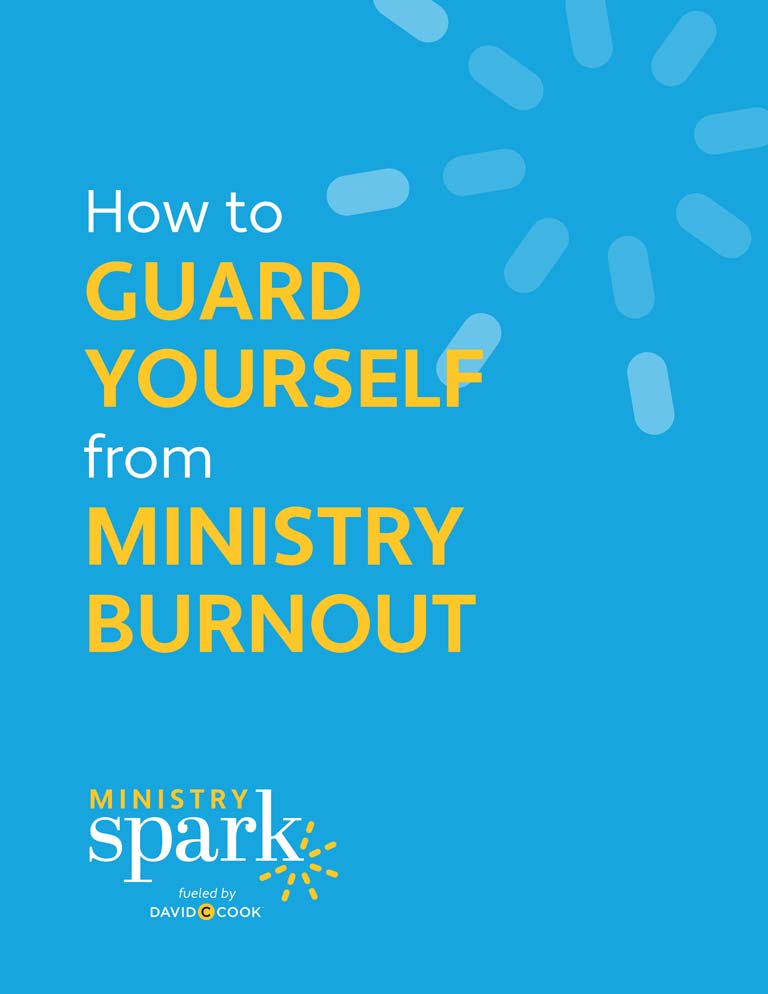Thoughtful Ways to Empower Women in Ministry
I vividly remember a conversation with an Associate Pastor in my early years as a Children’s Ministry Director. We were chatting about books, and he quickly grabbed one from his office to share. “You should definitely read this one about preaching. It’s amazing, and I really think you’ll love it too!” Then he quickly followed up by saying, “Not that you’ll ever actually preach, because, well, you’re a woman. But you should read it!”
I felt a bit encouraged as it seemed he was trying to empower me in ministry, but, at the same time, I also felt like I had just been slapped across the face. I didn’t know what to say or how to respond. Even now, as I recall the incident, a flush of anger rises along with a flush of embarrassment. I just didn’t know how to react in the moment or how to advocate for myself.
For women and men both, there are practices we can engage in together to listen, empower, and help women flourish in their ministry.
If you’re a woman in ministry, no doubt you’ve experienced setbacks, harsh or confusing words, doubts of your call or place in ministry, or a sense of discouragement. Please know you are not alone in feeling frustrated. Also, know this shouldn’t be the norm. While you may experience moments of frustration, there are practices you can begin which will empower you in your ministry role whether you are a volunteer or in a paid staff position.
For women and men both, there are practices we can engage in together to listen, empower, and help women flourish in their ministry.
Here are some ways you can advocate for yourself and others:
You Are His
Remember, you are first and foremost a beloved daughter of the King. He created your inner most being (Psalm 139:13), and you are precious to Him. He also created you for good works and has already prepared them (Ephesians 2:10). It is not okay for anyone to violate the imago dei, the image of God in you, or the missio dei, the mission He has prepared for you. Take some time to journal about this, remembering your heritage. Write reminders on sticky notes and place them where you’ll regularly be reminded of this deep truth.

Find Your Advocates
I encourage you to develop of team of advocates who can help you with different areas of your life. If you struggle with a sense of identity or worth, it’s okay to find a professional counselor. There may be ongoing issues from your primary family which still need healing, and it’s a good practice to regularly engage with a counselor. A spiritual director can help you discern the work of God in your life and is a valuable asset to your team.
Identify a trusted colleague, perhaps from another church or network, where you can openly share your frustrations or experiences. Look for female clergy, lay-leader cohorts, or networks to get involved with, finding encouragement and resources. Identify a member of your church’s leadership team or council to whom you can go to with concerns, trusting they will listen to you.
Listen to Women’s Stories
This is a step we can all take. Create space for women to share their negative and hurtful experiences. This isn’t a time to fix the problem but a time to take a step toward actively listening to the real-life experiences women have had in ministry and life. Listen for where the work of God has been thwarted in their calling. Recognize it and name it. Pray together in lament before God.
Intentionally Create Space
After listening to women’s stories, consider ways you can remove roadblocks or stumbling blocks. Who has God already called as a leader, and how can you help give them voice? Are there women following in your footsteps whom you can mentor? Do you see teams in your church which are male dominated and need a female voice? Are their leadership positions without women? Is your Sunday service equally representative of females and males? What shifts in priority need to occur to give room to the unique gifts and talents of women?

Seek Unity
Recall that unity does not mean uniformity, and diversity does not meet division. 1 Corinthians 12 reminds us there are many parts in the body of Christ and all are needed. In the human body, if a part isn’t working as designed, the body is often called disabled. So too, when women are not allowed to flourish as God designed, the bodies of our churches are disabled. What amends need to be made to those who have been hurt? Where can you take a step toward repairing unity?
Stand in Solidarity
First Corinthians 12:26 also reminds us, “if one part suffers, every part suffers with it; if one part is honored, every part rejoices with it.” We must stand with our sisters in Christ, recognizing the unique talents and gifts God has given them. We need to declare they are seen, heard, valued, and a necessary part of the body of Christ. It’s not uncommon to see a few admonishing verses of Scripture out of context to diminish women in ministry. Instead, we can use all of Scripture to lift up and empower women in the leadership roles God has created for them. Who can you stand with?
We remove the roadblocks and stand in the gap, loving and empowering one another with the love of Christ. This is an ongoing process we can commit to engaging in together.
A Note of Caution
If you are experiencing verbal or emotional bullying or abuse, please reach out to someone for help immediately. This might look like verbal attacks on your character or your ministry role, name calling, or body posturing like “getting in your face.”
Verbal bullying can also be use of aggressive language, finger-pointing, talking over someone repeatedly, intentionally ignoring or undermining your work. There should be no tolerance for this in the church.
An Ongoing Practice
I recall sitting in a theology class a few years ago discussing women in ministry with our table groups. One man was thinking of negative experiences a female colleague had endured, saying, “I see how hard she had to work to prove herself.”
I quickly interjected. Friends, if we see this and know this, we step in and stand up for one another. We remove the roadblocks and stand in the gap, loving and empowering one another with the love of Christ. This is an ongoing process we can commit to engaging in together.
“Whatever you have learned or received or heard from me, or seen in me—put it into practice. And the God of peace will be with you.” Philippians 4:9

How to Guard Yourself from Ministry Burnout

How to Guard Yourself from Ministry Burnout












